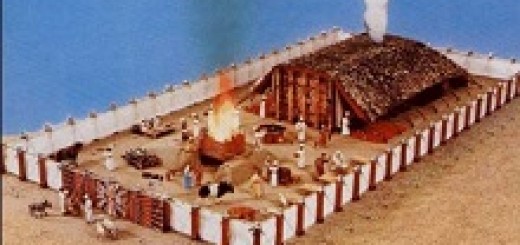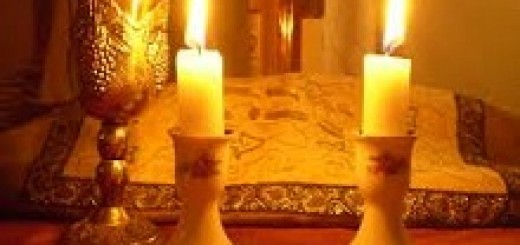By Avner Friedmann
If a person has a court date, even on a matter of little consequence, and he knows he must testify and present his case before a judge, he makes sure to prepare himself as well as possible, leaving nothing to chance. He will try to find the best attorney he can afford and the night before the trial will most likely be an anxious and sleepless one. The next day at court he will try to make the best impression possible before the judge. He will dress appropriately and be aware of every word that comes out of his mouth, being fully aware that it could affect the judgment. Throughout the trial he will be nervous and worried about the final outcome.
Now, as we all know, Rosh HaShanah is the great day of judgment in which the King, King of kings, the Holy One, blessed be He, judges all of creation. On Rosh HaShanah He decides who will live and who will die, who will be healthy and who will be sick, who will prosper and who will be impoverished. If so, why is it that for the most part, we do not enter Rosh HaShanah with as much apprehension as when we stand before an earthly judge!?
On the last day of his life, our teacher Moshe assembled all the Jewish people and told them[1]: “You are standing today, all of you, before Hashem, your G-d: your heads, your tribes, your elders, your officers, all the men of Israel; your young children, your women and your converts within your camp; from your woodchopper to your water-drawer.” The Holy Zohar states that the word “today” here, refers to the day of Rosh Hashanah[2].
Now, Rashi[3] asks why these words of Moshe follow immediately after the list of curses and afflictions that would befall the Jewish people if they would not listen to the will of HaShem?[4] He answers; “Because after the curses, the Jewish people were very fearful and exclaimed, “Who can withstand this?” Therefore Moshe comforted and encouraged them by saying: “You are standing today, all of you, before HaShem your G-d”. Despite all the curses, you are still here and stand before Him today. In spite of everything, you have survived.
The commentators ask; “If the intention of the curses was to instill fear in them, why did Moshe comfort them afterwards and tell them that everything will be fine? As known, “fear of HaShem” is one of the fundamental feelings a person must have to establish a true relationship with HaShem, as in the verse[5]: “Now, O Israel, what does Hashem, your G-d, request of you, but to fear Hashem your G-d and go in all His ways.” The very first step in the process of knowing Hashem is fear of HaShem, as King David wrote[6]: “The beginning of wisdom is the fear of Hashem” and the Zohar states that this is the foundational bedrock of all the mitzvot.[7]
On Rosh Hashanah all the inhabitants of the world pass before HaShem and are scrutinized and judged[8]. This being the case, a person should not feel that, “I will be at peace, though I act as my heart sees fit”[9] which Rashi interprets as[10], “I will do as I please, without fear.”
Many of us approach Rosh Hashanah somewhat complacent, even relaxed! We change little between one Rosh Hashanah and the next and feel that if we were fine in the past, we will be fine in the future.
This is not the right attitude to have on Rosh Hashanah. With this kind of attitude, HaShem holds us responsible, not only for our intentional sins, but our unintentional ones as well, because all of them are equally the result of complacency and indifference; in other words, we do them because we do not take the gravity of our transgressions seriously.[11]
By having at least some degree of genuine fear of HaShem on Rosh HaShanah we demonstrate that we acknowledge that there is a King, King of kings, who sits in judgment and examines our hearts and that it is He who decrees, inscribes and seals our destiny for the new year. When we judge ourselves and honestly resolve to change (which is what true fear of HaShem means) then judgment from above becomes unnecessary and HaShem exonerates us from our past misdeeds.
However, the question remains. Why is it that so many of us enter Rosh HaShanah without as much seriousness as when we stand before an earthly judge, and how do the words, “You are standing today, all of you, before HaShem your G-d”, resolve this problem and neutralize the curses?
The teachings of Chassidus explain that it is specifically because we experience the presence of the earthly judge as a direct empirical experience that we fear him, whereas, for most of us, the presence of HaShem is intellectual at best, and so we have no fear of Him, heaven forbid. However, through the deep contemplation and meditation of the teachings of Kabbalah and Chassidus, a person can come to a tangible, experiential recognition of the immediacy of HaShem’s presence, in a very palpable way. This automatically ignites actual heartfelt emotions of love and fear towards HaShem.
This, then, is the meaning of the opening words of our Parsha, “You are standing today, all of you, before HaShem your G-d.” In other words, if a person truly realizes that at all times he is quite literally standing in HaShem’s presence, then love and fear of HaShem will automatically be aroused in him, as the Rema[12] states in the beginning of Shulchan Aruch, that if a person contemplates and truly realizes that HaShem, the great King, blessed be He, fills the world with His glory and is aware of everything he does; awe and fear of HaShem will instantly fall upon him.
In conclusion, King Solomon, the wisest of all men, ends the book of Ecclesiastes with these words:[13] “The sum of the matter, when all has been considered, is fear G-d and keep His commandments, for this is the whole purpose of man. For G-d will judge every deed, even everything that is hidden, whether good or evil.” Moreover, the Talmud[14] states that the entire world was created for a person such as this, who adheres to HaShem in this manner. May it be HaShem’s will that we all merit to be inscribed and sealed in the Book of Life, with blessings of health, wealth and happiness for the coming new year, and may we merit to behold the true and complete redemption, with our righteous Moshiach. Amen.
[1] Deuteronomy 29:9-11
[2] Zohar Chelek 3, p. 131
[3] Rabbi Shlomo Yitzchaki, Deuteronomy 29:12
[4] Parshat Eikev.
[5] Deuteronomy 10:12
[6] Psalms 111:10
[7] Tikunei Zohar 25b
[8] Tractate Rosh Hashanah 18a
[9] Deuteronomy 29:18
[10] Ibid
[11] See Rashi Deuteronomy 29:18
[12] Rabbi Moshe Isserles
[13] Ecclesiastes 12:13-14
[14] Tractate Shabbat 30b.






















